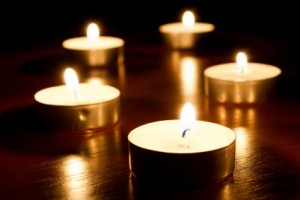 The moment 12 year old Shoshie Stern’s extended family heard about her tragic passing, they dropped everything and made their way to South Florida to be with their family. Grandparents, aunts, uncles, and cousins all descended upon the Stern home to cry and to lend a shoulder.
The moment 12 year old Shoshie Stern’s extended family heard about her tragic passing, they dropped everything and made their way to South Florida to be with their family. Grandparents, aunts, uncles, and cousins all descended upon the Stern home to cry and to lend a shoulder.
Shoshie’s recent birthday was certainly celebrated and marked by her immediate family, however a Bat Mitzvah party in her honor had not yet been planned. Coordinating everyone’s schedule proved a formidable challenge. When this grandparent could come, the other couldn’t be there. When this aunt and uncle were free, others already had commitments.
At the Shiva, Shoshie’s mom, Denise, looked around the room filled with family and friends and remarked to Yocheved, “It’s such a shame, in the end everyone found a way to all be here together. I only wish it was for a simcha.”
Whenever I am asked for advice about traveling to attend a family simcha when it is inconvenient, ill-timed, or expensive, I always say the same thing. If it were a funeral would you find a way to go? If we would drop what we are doing and make extraordinary efforts to be there for a tragedy, why not take those same measures to be there to celebrate a simcha? Life is way too short, the future is too unknown. Take advantage of every single opportunity to be with family in moments of joy before needing to be there for moments of grief and sadness.
Shoshie’s passing brought together our entire community with a sense of unity, the likes of which I have never felt. Rabbi Rabovsky, Rabbi Gibber, and I worked closely and intensely to plan, coordinate and organize all that needed to be done. The over-1,000 people in attendance came from all three Shuls. The students who came that day attend a variety of different schools. And for those few hours we stood together, members of an integrated and united community, undivided as one.
Why does it take the death of a 12-year-old girl to bring us all together? Surely there are events, programs, commemorations, or speakers for which we can gather even more people with a sense of unity and cohesiveness. Why must it take tragedy to make us feel as one?
Earlier this week, the bombing at the Boston Marathon shook our entire nation. As we watched fellow Americans mourn and grieve, we all felt their pain, identified with their fear, and associated with their anger. All over social media people simply said, “Today, we are all Bostonians.” Indeed, even the Red Sox arch rivals, the Yankees, hung a sign outside their stadium with the team logos side by side and the words “United We Stand.”
Why should it take three deaths and hundreds of injuries for us to feel a sense of patriotism, wherever we may live? Why should it take a city under siege for every American to feel a sense of kinship and affiliation with one another? Why should it take graphic images of death and injury to feel a sense of empathy and concern for other human beings?
When the bombs went off at the finish line, remarkably, there were people who ran towards the smoke instead of away from it in order to see how they could help. In doing so they risked their lives not knowing if there would be any further explosions. They did so instinctively and intuitively out of an incredible sense of wanting to help. In another display of resolve and determination, there were individuals who, after completing the 26.2-mile marathon, ran another 2 miles to the hospital to donate blood.
The Ramban writes that the purpose of a nisayon, a test, is to help bring our latent potential into reality (ko’ach el ha’poel). When backed into a corner, pressed against the wall or in a terrible bind, we find capacity that we had never fully realized before and may not have even known we have. Just last week in Oregon, two teenage girls saved their father’s life when they lifted a 3,000-pound tractor off their father’s chest. If asked to lift a tenth of that, they likely would say it’s impossible. However, when faced with no other option, they discovered strength they never knew they had.
Let’s not wait for another tragedy. Let’s not wait for a family funeral to travel, when we could see our family at the next simcha. Let’s commit to come together as a greater community with a sense of unity, for no other reason than simply because we should. Let’s not wait to be tested in order to realize the strength that we’ve had all along.
The words of this author reflect his/her own opinions and do not necessarily represent the official position of the Orthodox Union.
